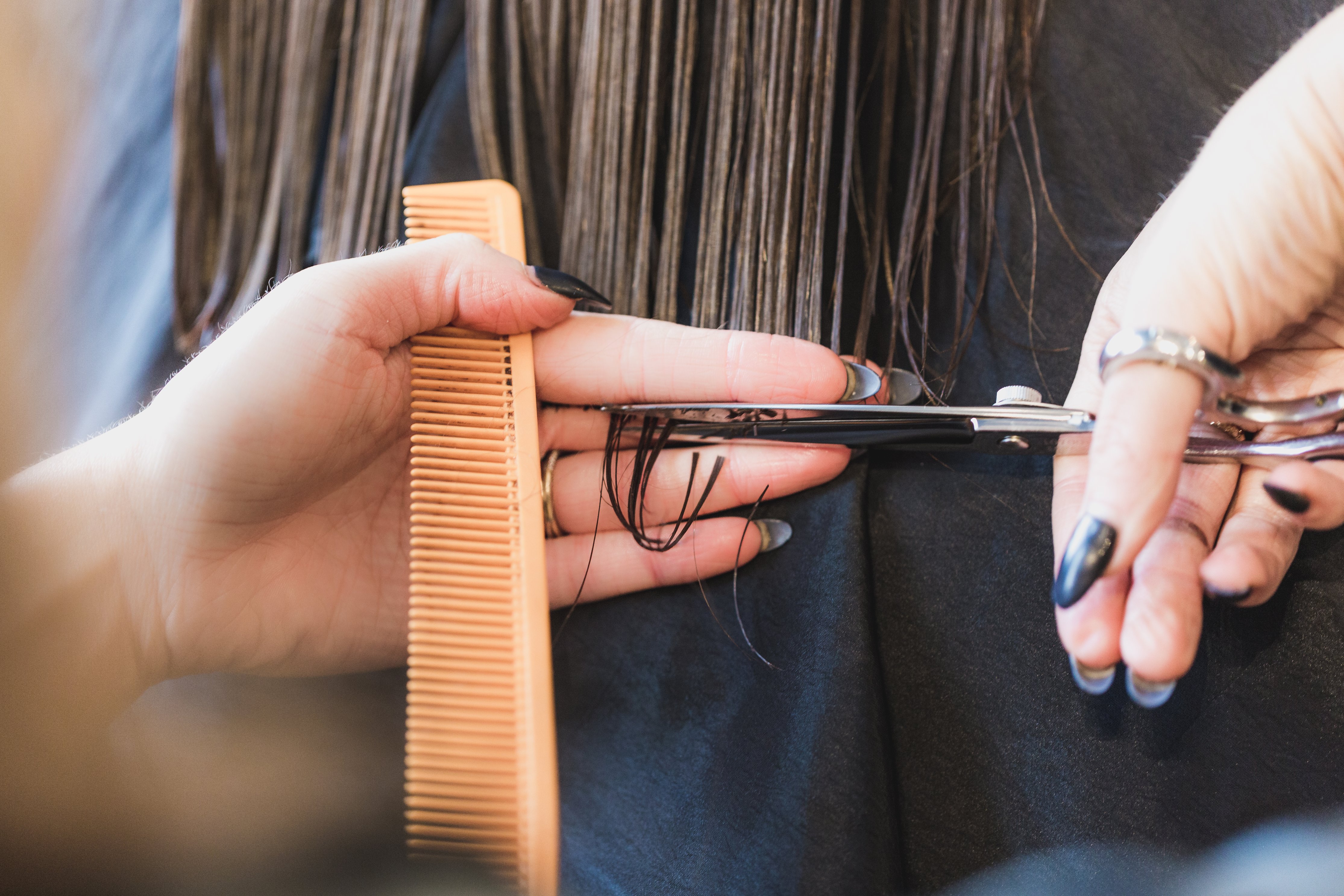Asses Your Hair’s Current State
Just like all of your other relationships, your hair status needs a serious diagnostic check every once in a while to ensure it’s healthy. Look at your lengths and take note of how far up any split ends go. The further up they go, the more indication that it’s time for a cut. Split ends create the appearance of frizziness and can become a pain when you style. The ironic part is that those looking to grow out their hair may avoid getting trims for fear of losing length, but postponing a snip could mean split ends that have unraveled further up the hair strand meaning that there’s more you’ll have to trim off for healthy ends. The moral? Regular trims could actually help hair appear to grow faster.
Update Your Calendar
Speaking of keeping things regular, you should try and schedule haircuts in advance to ensure you stick to a schedule. The usual time frame people tend to go in between trims is about three months, but, not all hair is created equal, so your routine snips could depend on the length you’re maintaining as well as your texture. If your hair is generally healthy and not prone to split ends, here’s our general rule of thumb:
Short Hair: 4 to 6 weeks
Medium Length Hair: 6 to 8 weeks
Long Hair: 8 to 12 weeks
Use the Right Technique for Your Hair
While we think you should aspire for any haircut you want, the wrong technique used to cut it could cause a risk of damage and shaping issues as your hair grows back. For instance, a razor cut (a haircut where a razor blade is the tool) isn’t great for long, curly, textured, and high porosity hair. That also goes for bleached or over processed strands, as it can make hair look thinner. If you have a short pixie or bob, razor cuts could be great. Finally, stick to tapered layers if you have thick, straight hair, or debulk your ends and make sure the layers blend to avoid them looking too choppy.
Settle the Wet vs. Dry Debate
When it comes to the mechanics of cutting hair, your go-to stylist is definitely the expert on whether your hair should be cut dry or wet. However, knowing this information yourself can’t hurt, especially when seeking out a new stylist.
Curly hair can lose almost 75 percent of its length as it goes from wet to dry, so if it’s cut wet, it’s hard to gauge how short the cut will actually be. In that case, you want a dry cut, which also applies to damaged hair since these types have delicate cuticles that become invisible once hair is wet. When the damage isn’t apparent, it’s hard to figure out if the stylist is actually cutting it out or not. All other hair types? Feel free to cut them wet!
Keep Up the Good Work
The months between haircuts and trims should be spent treating your hair to nutritive ingredients and routines. Incorporate a sulfate-free shampoo, into your regimen and add a deep conditioning treatment every two weeks. For everyday protection, rely on your leave-in conditioner and oils such as avocado, jojoba, and coconut, especially for curls and longer lengths. This maintenance will help stave off split ends, breakage, and dryness.
A great cut needs the proper hair care. Find your unique blend here.





